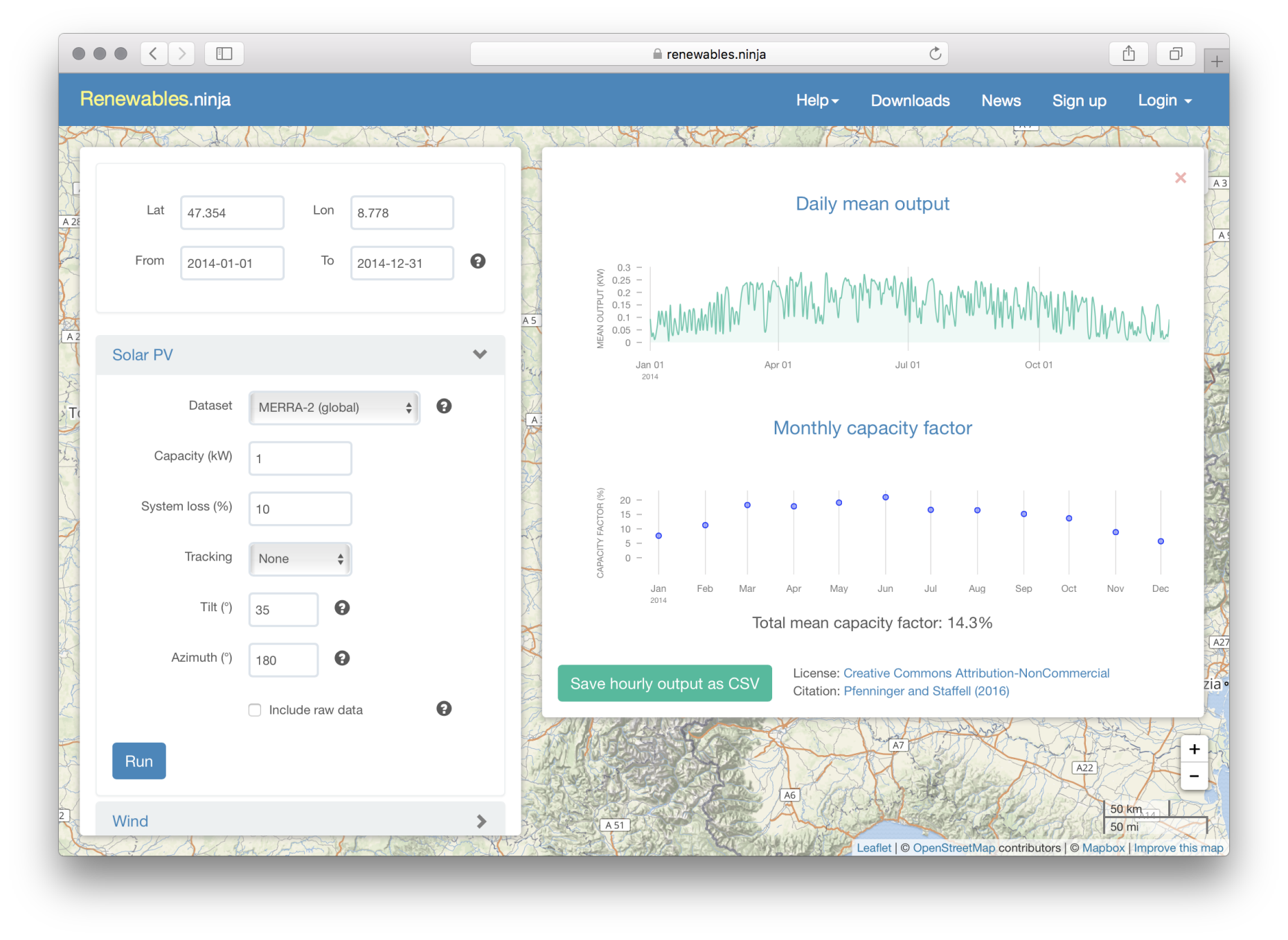Ninjas serve open data, enabling new insights for the energy transition
The world’s electricity systems are rapidly evolving with the deployment of weather-dependent solar photovoltaic (PV) and wind generation. Yet their variability at different scales is still poorly understood. The Renewables.ninja project is addressing this gap and making the resulting high-quality, validated PV and wind simulations freely available online.
The variability of PV and wind generation in time and space pose increasing challenges both for operation and modelling of power systems. Meteorological reanalysis data – consistent datasets of historical weather conditions based on combining measured observations with weather forecast models – are rapidly gaining prominence in the energy community due to their convenience and global coverage. However, these data are known to contain significant bias which needs to be corrected for, for which little work exists in the energy domain.
Renewables.ninja, led by ETH researcher Stefan Pfenninger and developed in collaboration with Imperial College London, is addressing this gap by using a unique database of wind farms, crowdsourced PV generation data, and national outputs reported by transmission network operators to derive bias correction parameters. The resulting hourly data covering 30 years of historical weather conditions have already been used in various scientific publications and are leading to a range of new collaborative work.
An easy-to-use web platform, external page www.renewables.ninja, is making the data available to other researchers for use in their own analyses. As external page our team has argued, we believe the urgency of the energy transition calls for more such work on making data and methods transparent.
The researcher responsible for this project is Dr. Stefan Pfenninger in the Climate Policy (CP) Group. The CP group is based in ETH’s Department of Environmental Systems Science and is led by ESC member, Prof. Anthony Patt.
The project website is external page https://www.renewables.ninja/. The project is under further development, with the underlying scientific work so far described in two papers:
Stefan Pfenninger and Iain Staffell (2016). Long-term patterns of European PV output using 30 years of validated hourly reanalysis and satellite data. Energy 114, pp. 1251-1265. external page doi:10.1016/j.energy.2016.08.060
Iain Staffell and Stefan Pfenninger (2016). Using Bias-Corrected Reanalysis to Simulate Current and Future Wind Power Output. Energy 114, pp. 1224-1239. external page doi:10.1016/j.energy.2016.08.068
